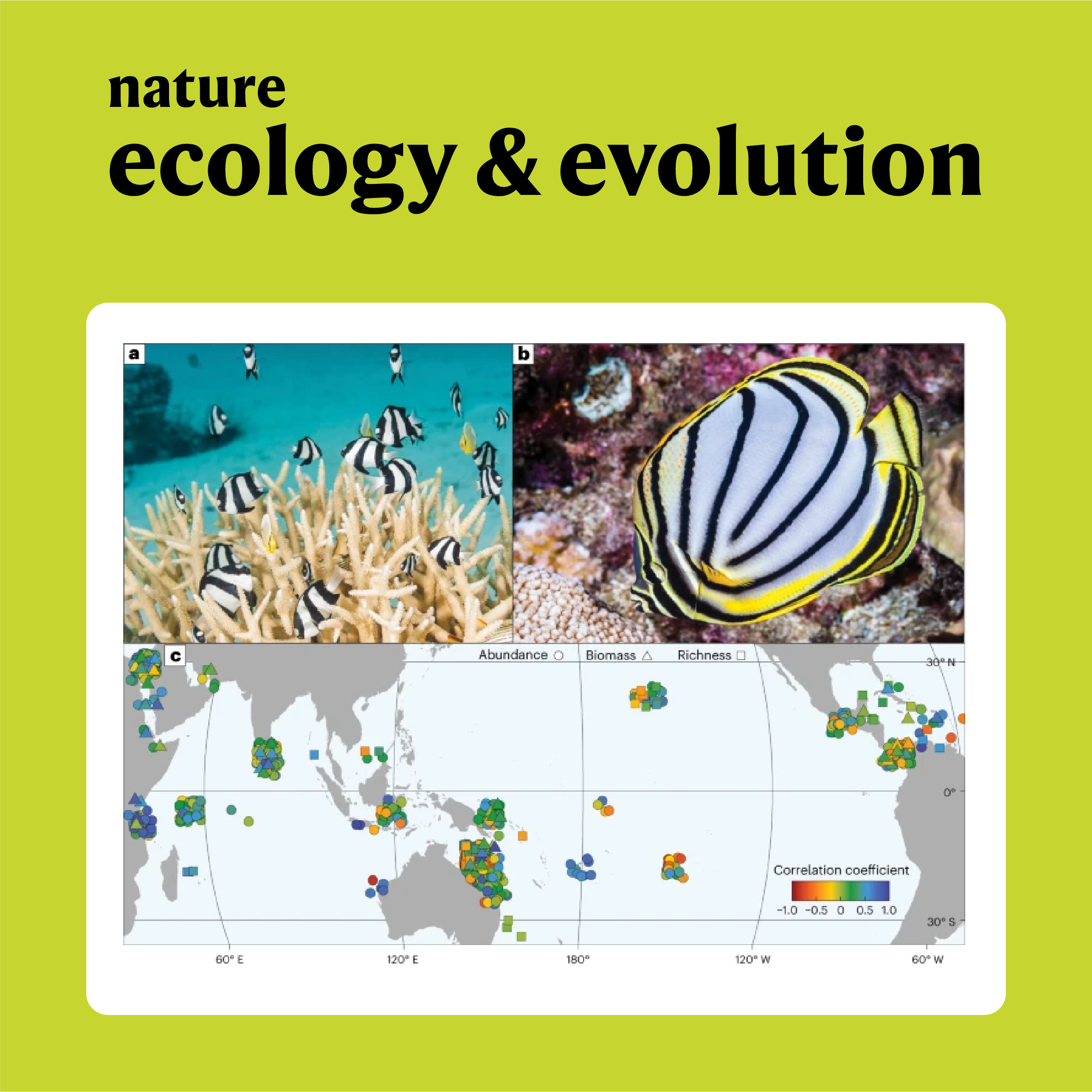Meta-analysis reveals weak associations between reef fishes and corals
Pooventhran Muruga, Alexandre Siqueria & David Bellwood
Abstract:
Habitat associations underpin species ecologies in high-diversity systems. Within tropical, shallow water coral reefs, the relationship between fishes and corals is arguably the most iconic and highly scrutinized. A strong relationship between fishes and reef-building hard corals is often assumed, a belief supported by studies that document the decline of reef fishes following coral loss. However, the extent of this relationship is often unclear, as evidenced by conflicting reports. Here we assess the strength of this ecological association by relying on literature that has surveyed both fishes and corals synchronously. We quantitatively synthesize 723 bivariate correlation coefficients (from 66 papers), published over 38 years, that relate fish metrics (abundance, biomass and species richness) with the percentage of hard coral cover. Remarkably, despite extensive variation, the pattern of association on a global scale reveals a predominantly positive, albeit weak (|r| < 0.4), correlation. Even for commonly hypothesized drivers of fish–coral associations, fish family and trophic group, associations were consistently weak. These findings question our assumptions regarding the strength and ubiquity of fish–coral associations, and caution against assuming a direct and omnipresent relationship between these two iconic animal groups.

